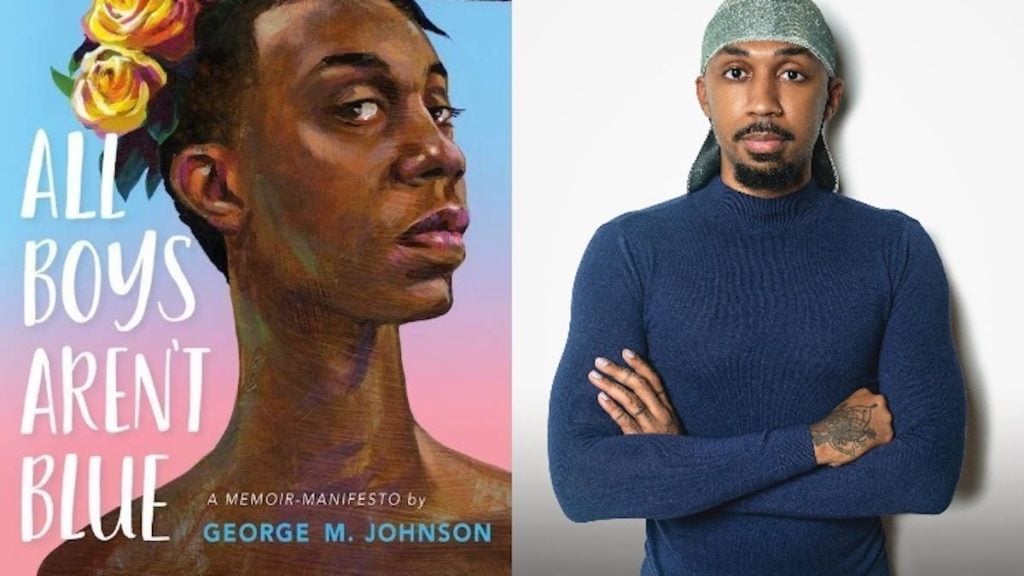
“All Blues Aren’t Blue” has reportedly removed from libraries and schools in eight states. The young adult book, which Johnson declares as a memoir-manifesto, details their experiences as a young Black queer person navigating the world as they grew up. It is composed as a series of essays. Attempts at book bans spiked in 2023, with 4,240 titles targeted in schools and libraries nationwide — a 65% increase from 2022, according to the American Library Association. Titles representing the voices and experiences of LGBTQ+ individuals and people of color accounted for 47% of books targeted. Photo of George M. Johnson by Vincent Marc.
Attempts at book bans spiked in 2023, with 4,240 titles targeted in schools and libraries nationwide — a 65% increase from 2022, according to the American Library Association.
Titles representing the voices and experiences of LGBTQ+ individuals and people of color accounted for 47% of books targeted.
“Every challenge to a library book is an attack on our freedom to read,” American Library Association President Emily Drabinski said in a press release. “The books being targeted again focus on LGBTQ+ and people of color. Our communities and our country are stronger because of diversity. Libraries that reflect their communities’ diversity promote learning and empathy that some people want to hide or eliminate.
“Libraries are vital institutions to each and every community in this country, and library professionals, who have dedicated their lives to protecting our right to read, are facing threats to their employment and well-being,” she said.
The American Library Association identified several key trends in 2023’s censorship efforts, according to a report from its Office of Intellectual Freedom.
- Pressure groups focused on public libraries in addition to targeting school libraries.
- The number of titles targeted for censorship at public libraries increased by 92% over the previous year
- School libraries saw an 11% increase.
- Groups and individuals demanded banning dozens or hundreds of titles at a time, which drove the surge.
- In all, extremists made 1,247 demands to ban books.
Efforts were made to ban more than 100 titles in 17 states: Colorado, Connecticut, Florida, Idaho, Illinois, Iowa, Kentucky, Maryland, Missouri, North Carolina, Ohio, Pennsylvania, Tennessee, Texas, Utah, Virginia, and Wisconsin.
In response to the surge in book challenges, the association has launched Unite Against Book Bans, a national initiative for readers everywhere to fight book bans.
The coalition will mark its second anniversary during National Library Week, April 7-13.
On April 8, the American Library Association will release its list of the top 10 most challenged books in the nation. It will coincide with Right to Read Day of National Library Week, along with its State of America’s Libraries Report.
“The reports from librarians and educators in the field make it clear that the organized campaigns to ban books aren’t over, and that we must all stand together to preserve our right to choose what we read,” Deborah Caldwell-Stone, director of the American Library Association’s Office for Intellectual Freedom, said in the release.
“Each demand to ban a book is a demand to deny each person’s constitutionally protected right to choose and read books that raise important issues and lift up the voices of those who are often silenced,” she said.
